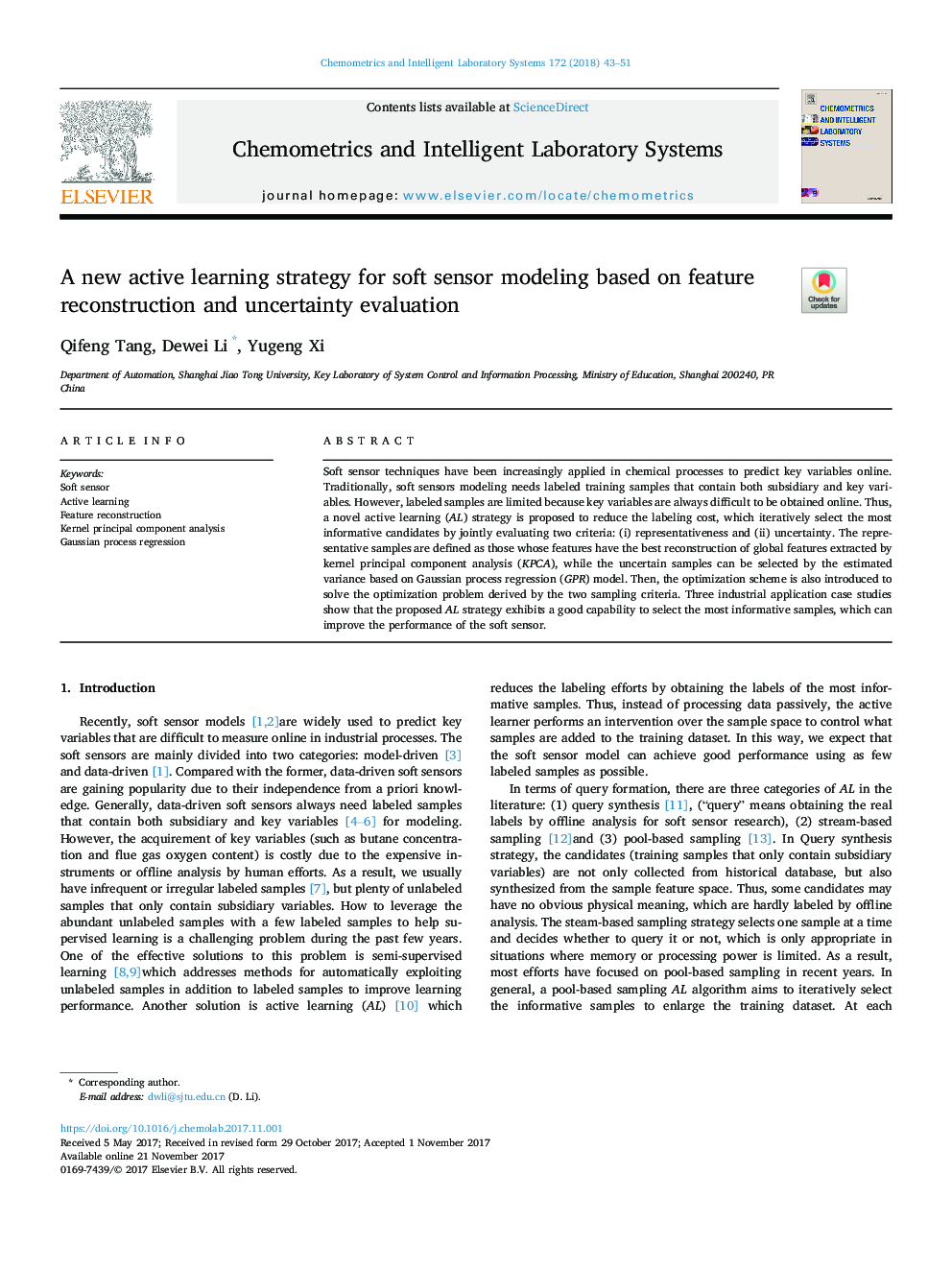| کد مقاله | کد نشریه | سال انتشار | مقاله انگلیسی | نسخه تمام متن |
|---|---|---|---|---|
| 7562282 | 1491507 | 2018 | 9 صفحه PDF | دانلود رایگان |
عنوان انگلیسی مقاله ISI
A new active learning strategy for soft sensor modeling based on feature reconstruction and uncertainty evaluation
ترجمه فارسی عنوان
یک استراتژی یادگیری فعال جدید برای مدل سازی سنسورهای نرم افزاری بر اساس ویژگی های بازسازی و ارزیابی عدم قطعیت
دانلود مقاله + سفارش ترجمه
دانلود مقاله ISI انگلیسی
رایگان برای ایرانیان
کلمات کلیدی
سنسور نرم یادگیری فعال، بازسازی ویژگی، تجزیه و تحلیل مولفه اصلی هسته، رگرسیون فرآیند گاوسی،
موضوعات مرتبط
مهندسی و علوم پایه
شیمی
شیمی آنالیزی یا شیمی تجزیه
چکیده انگلیسی
Soft sensor techniques have been increasingly applied in chemical processes to predict key variables online. Traditionally, soft sensors modeling needs labeled training samples that contain both subsidiary and key variables. However, labeled samples are limited because key variables are always difficult to be obtained online. Thus, a novel active learning (AL) strategy is proposed to reduce the labeling cost, which iteratively select the most informative candidates by jointly evaluating two criteria: (i) representativeness and (ii) uncertainty. The representative samples are defined as those whose features have the best reconstruction of global features extracted by kernel principal component analysis (KPCA), while the uncertain samples can be selected by the estimated variance based on Gaussian process regression (GPR) model. Then, the optimization scheme is also introduced to solve the optimization problem derived by the two sampling criteria. Three industrial application case studies show that the proposed AL strategy exhibits a good capability to select the most informative samples, which can improve the performance of the soft sensor.
ناشر
Database: Elsevier - ScienceDirect (ساینس دایرکت)
Journal: Chemometrics and Intelligent Laboratory Systems - Volume 172, 15 January 2018, Pages 43-51
Journal: Chemometrics and Intelligent Laboratory Systems - Volume 172, 15 January 2018, Pages 43-51
نویسندگان
Qifeng Tang, Dewei Li, Yugeng Xi,
